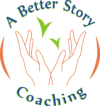for·give (verb)
/fərˈɡiv/
Stop feeling angry or resentful toward (someone) for an offense, flaw, or mistake.
Forgiveness is a concept addressed in social and religious norms across the globe. My earliest memories of the idea were, when as a child, I would recite the Lord’s Prayer with my grandmother “and forgive us our trespasses, as we forgive those who trespass against us.” To me, the implications were if I don’t forgive, God will not forgive me, and I will not go to heaven. To forgive and be forgiven became a deeply rooted belief that was easier said than done, especially when friendships went wrong or family disagreements emerged. Personally, I have had my share of making amends due to careless communication and actions or because my words were misinterpreted. Independent of the intention or the reception, I found that if I acknowledged the error and apologized, the person affected was open to forgiving me. Later, when I worked on the issue of sexual violence, I felt that getting an acknowledgment from the abuser; a simple “I made a mistake, and I am sorry this caused you pain” would have helped cure so much of the pain of the victims we supported. Yet, hearing these words from an offender is usually an expectation that will never be met. So how can someone who has been hurt heal and forgive?
Truly forgiving someone is not easy. There is a heaviness associated with it because we think that forgiveness is something we are obligated to do for others. Additionally, hurt and anger are complicated feelings to let go of. Expressing them is not socially acceptable, and their intensity can take your mind down a road that is difficult to come back from. Thus, repressing them is a coping strategy that most people use. Another big obstacle to forgiveness is the fear that by pardoning someone, we become vulnerable and can be hurt again. This self-protective instinct can make us cynical and distrust others, making relationships difficult to manage or enjoy.
But what if forgiveness was something we did as a personal self-healing process instead of something we do for others? Most people can agree that holding onto resentment hurts us more than the aggressor. These heavy feelings we carry around do not change their lives in any way. Yet, like a dark cloud, they follow us everywhere, weakening the possibility of living a happier life. Thinking about forgiveness as a personal experience is a total change of paradigm, but it is possible. Here are some simple steps that I have borrowed from different disciplines. They worked for me and hopefully can get you started on this process:
Last year, during a coaching exercise, I realized that some of my childhood emotionally charged memories were perhaps distorted by how I interpreted those events from a child’s viewpoint. During the exercise, I recognized that the way I remembered events had a limited perspective based on the information I had at that moment. I also understood that I created standards similar to the standards my aggressors held over me throughout my life. In the exercise, I followed steps similar to the ones above and promised myself that I would not continue feeding this pattern. A few months later, I noticed that I started forgetting the memories that I had carried on for so many years, and my brain had replaced them with good memories. I now realize that these memories stayed because I was clinging to them. Somehow, in an unhealthy way, they justified my victimhood and made me feel acknowledged. By replacing them with my own healthy acknowledgment, there was no need to feel like a victim any longer.
I am not suggesting that someone else’s wrongdoings are justifiable. I am saying that we do have an internal natural healing power, which can help us close the wounds. That healing power starts with looking into the situation from a bird’s eye view and then consciously deciding not to continue re-creating the memories. If the memories are intrusive, then there might be trauma involved, and professional help is required. But as a small empowering step, you can start practicing letting go of the minor incidents by finding your power and choosing not to focus your attention on those times you felt hurt by the actions of others.
For more information, you can contact Ivonne at info@abetterstorycoaching.com
